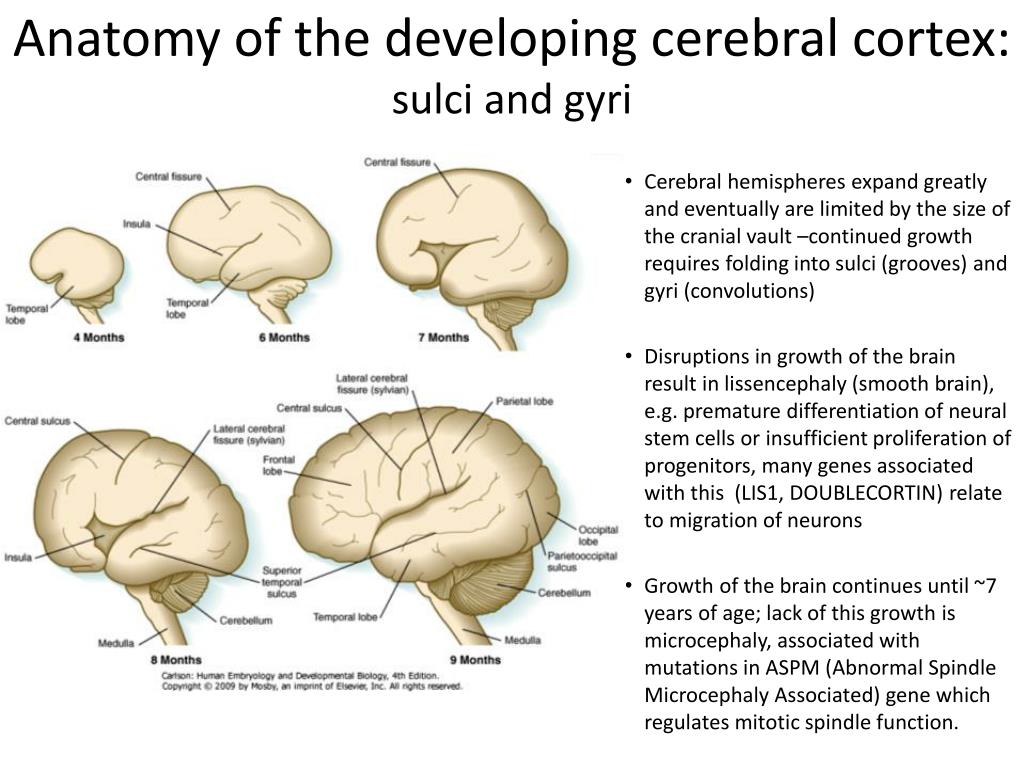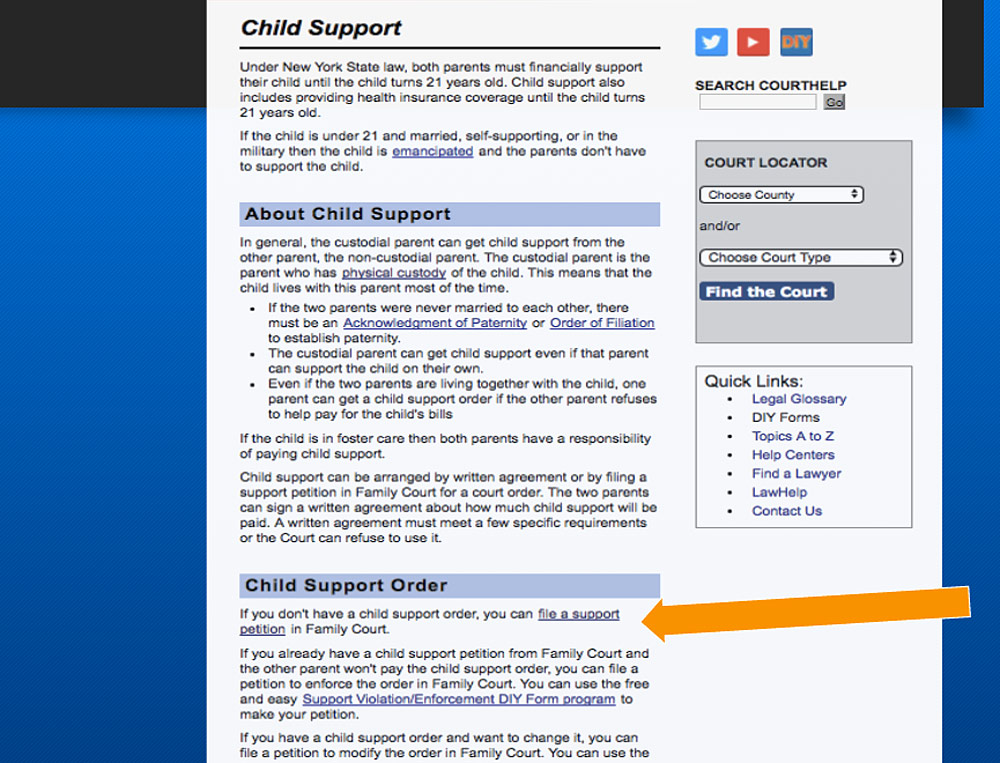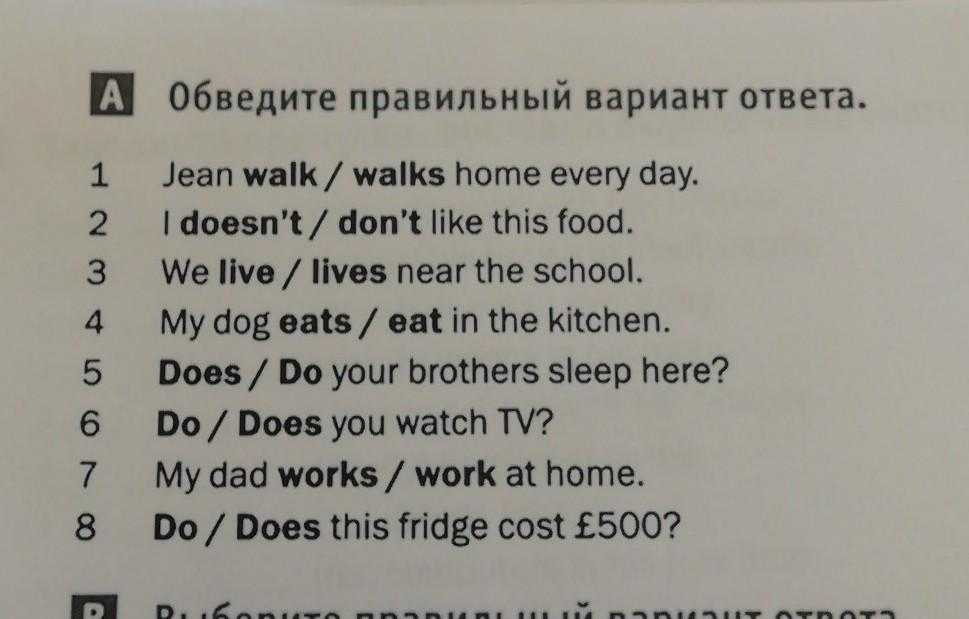How to stop a father seeing his child
Can a Mother Stop a Father from Seeing His Child?
Parents do not always agree when it comes to issues regarding their children, and things can get very contentious during divorce or separation. However, a mother can only stop a father from seeing his child in very limited circumstances.
A parent might believe they have the right to keep the other from seeing their child. But this is rarely the case, and the decision to do so can have serious and long-lasting consequences. Let us connect you with an experienced family law lawyer from our network to understand your rights.
State laws generally require both parents to be allowed reasonable visitation with their children unless visitation with one parent or the other is not in the children’s best interest. Whenever a parent's rights to custody or visitation are in question, the terms set forth in a legally binding, court-ordered custody and visitation arrangement, if there is one, become very important.
Whenever there is no court-approved custody order in place, parents have equal rights to custody of their children. The court expects the custodial parent to do what is reasonable to make a child available to the non-custodial parent at the times agreed upon in their custody arrangement.
A mother's unilateral decision to refuse a father visitation with his child, or to keep the child away from him without legitimate grounds to do so, could harm her right to custody and visitation when the matter finally goes before a judge.
Under What Circumstances Can a Child's Mother Stop a Father from Seeing His Child?
A mother only has grounds to stop a father from seeing his child if they can prove the father is unfit for visitation due to one or more of the following issues:
· Drug or alcohol abuse
· Child abuse or neglect
· Domestic violence
· Mental illness, and/or
· Continued criminal activity that affects his ability to care for the child
Proof of one or more of these issues can result in the court denying the father visitation. But the evidence must be clear and convincing to indicate that any visitation with the father would be contrary to the child's best interest.
When there is sufficient proof, a father's visitation rights can be revoked, or limited to supervised visitation, depending on what the judge believes is in the child's best interest.
Sometimes a child may not want to visit a parent, even when there is no question regarding the parent's fitness. So, while the custodial parent is required to do whatever is reasonable to comply with custody arrangements, that does not include forcing a child to visit the other parent against their will.
What to Do if Your Child's Mother Stops You from Seeing Your Child
So you have a child with someone you are not in a relationship with, and you want to be involved in that child's life as their father. But the child's mother is stopping you from seeing the child. She is either insisting that you have absolutely no involvement in your child's life or that she controls your involvement, and will only allow visitation on her terms and under her supervision. In other words, she doesn't really want you to have anything to do with your child.
So, what do you do?
1. Keep Detailed Records
If your child's mother is stopping you from seeing your child, and you are serious about gaining more time with the child, you need to start keeping detailed records of everything that goes on between you, the other parent, and your child. Document every attempt that you make to be involved in your child's life, including:
· Any attempts to call or visit your child
· Email correspondences
· Text messages
· Dates and times
· Any conversations you have had with your child's mother where you have been denied the right to see your child or access to information related to the child
This way, when the court wants to know what has been happening with your case, you will have detailed information to provide.
2. Obtain a Custody Order
If you have not already done so, obtain some form of child custody and visitation order. This can be a one or two-step process, depending on whether you already have a case open in the courts.
If you already have a case open in court but have not obtained a custody order (perhaps you are going through a divorce and have yet to make child custody arrangements, or because you have just established that you are the father of the child, and you are still in the process of seeking custody or visitation), then the next step is to go to court and request specific orders for custody.
On the other hand, if you do not have a case open at all, then you first need to open one to establish that you are the father and have the right to some form of custody and visitation. Once you have obtained a legally binding custody order, you will have something on paper and in writing that is easily enforceable.
3. Get the Police Involved if Necessary
If you have a legally binding custody order, and your child's mother still refuses to allow you to see your child, go to the police station closest to where your custody exchanges should take place, and file a police report. Then, ask the law enforcement officers if they would be willing to escort you to pick up your child for custody or visitation and enforce your child custody order for you.
Then, ask the law enforcement officers if they would be willing to escort you to pick up your child for custody or visitation and enforce your child custody order for you.
If the officers are willing, (and they typically will be when you have your court order in hand), they will go along with you and explain to your child’s mother that she must comply with your court-ordered custody arrangement, and that she could face criminal prosecution if she does not.
Often, the mother will then relent and allow you to visit your child. But you must make sure to return the child to the mother, and that you do not keep the child longer than agreed.
4. File a Contempt Action
Another way to enforce court-ordered custody and visitation arrangements is to file a contempt action with the court. Violating a court order is a crime that can be penalized by high fines and fees, and even jail time. Judges put custody and visitation orders in place to bring order to custody arrangements, and they do not take it lightly when a parent disregards a court order. So if your child's mother continues to violate your court-ordered custody arrangement, she could face serious repercussions.
So if your child's mother continues to violate your court-ordered custody arrangement, she could face serious repercussions.
5. Request a Modification of Your Custody Order
If you already have court-ordered custody arrangements in place, you can ask the court to modify them. Judges like to put a child in the custody of the parent who is more likely to facilitate their relationship with the other parent. Courts want children to be involved in both parents' lives, frequently and continually. So, if you are constantly being denied visitation or custody, you may have grounds to ask the judge for even more time with your child.
It is important to ask the court to modify your order so there is no room for it to be misinterpreted. That means including specific details regarding issues like, who gets the child on certain holidays, school days, weekends, and whatever else might cause a dispute between you and the child's mother. This way, if you have to involve law enforcement, they will have no doubts as to what is supposed to happen with regard to your custody or visitation arrangements.
6. Hire a Qualified Family Law Lawyer to Help You
If you are having trouble seeing your children, consult an experienced family law lawyer to determine your options. Modifying and enforcing court-ordered custody and visitation arrangements can be difficult without the help of a qualified lawyer.
Our network of family law lawyers has the experience and sensitivity needed to handle significant child custody or visitation rights issues, and we are ready to help your family today. Contact us for the help you need.
Save Money by Hiring an Unbundled Family Law Lawyer
One of the most heartbreaking things that can happen to a parent is to be denied visitation with their children. While the situation can be extremely sad and distressing, there is usually hope for better circumstances in the future.
Working with the right lawyer can help you convince the court to enforce or modify your child custody and visitation arrangements, so that you receive more time with your child. Our skilled family law lawyers work closely with our clients and vigorously fight for their rights, while saving them and their families money.
Our skilled family law lawyers work closely with our clients and vigorously fight for their rights, while saving them and their families money.
To hire a traditional lawyer to help you resolve a child custody or visitation rights issue can cost as much as $5000 or more. But unbundled family law services can start as low as $500-$1500.
Also, if your child custody or visitation rights issue is more complex, or is simply not a good fit for unbundled legal services, you can still hire one of our family law lawyers to provide you with comprehensive legal representation. If you have been denied custody or visitation with your children, contact Unbundled Legal Services to talk with a knowledgeable and experienced family law lawyer in your area.
Top 3 Improper Ways Parents Stop a Child From Seeing the Other Parent
Here are the top 3 improper ways a parent may try to stop a child from seeing the other parent
by B. Robert Farzad
Can a parent stop a child from seeing the other parent? Is it proper do so?
Find me two parents with a young child or children who are separating and you will likely find one parent asking these questions. Who asks this question? The parent whose parenting time is frustrated by the other parent.
Who asks this question? The parent whose parenting time is frustrated by the other parent.
What is the answer? The answer is usually no, a parent cannot stop a child from seeing the other parent unless a court order states otherwise. This question often comes up in the following situations.
- The parents (whether married or unmarried) are no longer together and the child resides with one of the parents. The parent with whom the child lives is limiting contact between the child and the other parent.
- The parents have an existing child custody and parenting time order. However, the child refuses to see one parent and the parent not seeing the child has reason to believe the other parent is encouraging this misbehavior.
- The parents have an existing court order, and a parent is violating the court order by interfering with the other parent's parenting time.
Let's get started.
P.S. If you like videos, we offer you one to watch below.
Be serious about parenting. This is not a game. Complaining about the other parent keeping the child from you may fall on deaf ears if you are not capable, ready and willing to spend quality time with your child.
Your Table of Contents for Topics We Cover
The following are the three main topics we cover.
- First, stopping a child from seeing the other parent when there is no court order.
- Second, stopping a child from seeing the other parent when a parent claims it is the "child's choice."
- Third and finally, stopping a child from seeing the other parent in violation of a court order.
Click on each image to jump ahead.
Play Video
Prefer to watch a video instead of or in addition to this article? You are in luck! Enjoy. For those with disabilities, here is a transcript of the video.Can a parent stop a child from seeing the other parent when there are no court orders?
We call this gate-keeping, and two types fit what we write about in this article.
Protective gate-keeping
Parents who have reasonable concerns about the other parent may engage in protective gate-keeping.
- They do stop a child from seeing the other parent but not because of nefarious reasons.
- They do so because of reasonable concerns grounded in facts.
The key to this is the facts.
A parent without a court order technically cannot stop a child from seeing the other parent. He or she may still have concerns regarding the following.
- Substance abuse,
- Lack of anger management (especially if it amounts to abuse), and
- Lack of parenting skills.
A parent who without reasonable justification stops a child from seeing the other parent often does so due to his or her own immaturity or nefarious intent. The gatekeeping results from the restrictive parent's obsession with control or simply unresolved anger against the other parent.
There is no perfect parent standard
What if the mother believes the father does not have her level of parenting skills? However, the father is otherwise capable of caring for the child without endangering the child. Is the mother's basis to stop a child from seeing the other parent unjustified? Yes, it is.
Is the mother's basis to stop a child from seeing the other parent unjustified? Yes, it is.
Through our extensive experience in child custody cases, we could probably give you over 50 examples of justified, protective gate-keeping and 50 more that were not.
Justification however still does not give a parent a legal basis to stop the child from seeing the other parent. The concerned parent should immediately seek appropriate child custody and visitation orders and bring his or her concerns to the court's attention.
The parent whose contact is unreasonably prevented or limited should not stand idly by and do nothing. If he or she does nothing, the parent may establish a status quo. The status quo may make it more difficult for the court to change it in the short term.
That parent should also seek immediate child custody and visitation orders.
What is a restrictive gate-keeper?
A restrictive gate-keeper is a parent who without justification prevents the child from seeing the other parent. The parent is usually scorned about the breakup and seeks his or her revenge by using a child as leverage to hurt the other parent.
This type of restrictive parent may also make false allegations of abuse or neglect against the other parent.
- Restrictive gate-keepers are not necessarily terrible parents.
- Despite their parenting skills, they have little respect for the other parent's role in the child's life.
Such parents engage in disparagement of the other parent or the other parent's family or friends to the child.
- Sometimes they do this directly to the child.
- Sometimes they ensure the child sees or overhears communication intended to disparage.
- They rarely co-parent without unreasonable conditions that satisfy their need for control.
Grandparents will sometimes become co-conspirators in the restrictive gate-keeping
We commonly see such parents defer to their parents (the child's grandparents) for help with the gate-keeping. The grandmother or grandfather then becomes a gate-keeping vehicle that assists the alienating parent throughout the process.
When a restrictive parent stops the child from seeing the other parent, court action becomes urgent. A gate-keeper is not a parent who reasonably believes they should limit contact. He or she is a parent who is often intent on destroying the other parent's relationship with the child.
- If the other parent does not take immediate court action, that parent empowers the restrictive parent to continue.
- The inaction often results in the bond between the other parent and the child to break.
This happens because the other parent spends limited or no time with his or her child.
When confronted with the restrictive gate-keeper, seeking joint custody is sometimes a mistake
Setting forth the restrictive gate-keeper's misconduct may justify asking the court for primary or even sole custody. Until the restrictive parent shows a willingness to co-parent and become reasonable, this may be the only reasonable option.
If the court does not grant your request, you will have at least set a precedent for it. Therefore, if you revisit it later, you may remind the court this was the concern you shared earlier, and it remains a concern.
All of this assumes you are the parent with the necessary parenting skills. It also assumes you have the time to dedicate to the child's care.
How can keeping a child from the other parent backfire if there are no court orders?
Just because there are no court orders does not mean a parent can frustrate the other parent's time with the child. The parent whose time was unreasonably frustrated has several options:
- The parent can ask the court for primary physical custody of the child or children. Frustration of parenting time is a factor the court takes into consideration when it makes custody orders. In extreme cases, especially those that involve abduction or concealing of the child, sole custody may be an appropriate request.
- The parent can ask the court to order the other parent into parenting or co-parenting classes.
Some parents who keep a child from the other parent do so due to their own immaturity or failure to understand how such behavior actually hurts the child. Parenting or co-parenting classes can help.
- California Family Code 271 is designed to punish bad behavior by ordering a spouse or parent to pay the victimized parent's attorney fees if the unreasonable parent engaged in litigation misconduct. Keeping a child from the other parent, taking unreasonable positions during a custody case and forcing litigation and court proceedings are all sanctionable under section 271.
Reviews
Read What Our Clients Say
Results
Read Our Client's Victories
Profiles of Attorneys
Our High Skilled Advocates
We Hope You Are Enjoying This Article
As you continue to read this article, we wanted you to know the attorneys at our premier family law firm are a phone call or email away.
Click below if you want to call us. Our office hours are Monday through Friday, 8 AM to 5 PM.
The contact form you see will send us an email.
Now, back to the article!
Call Us
Email Us 24/7
Contact Us
Your First and Last Name *
Other Party's First and Last Name *
Your phone number *
Email Address *
The information you provide does not form any attorney-client relationship. Please only provide the information the form requests. We must first conduct a conflict check before we contact you. By contacting us through this form, you authorize us to communicate with you by phone or email and you agree to these terms and conditions.
I agree to the above terms and conditions *
Hidden website input
Can a parent stop a child from seeing the other parent by claiming it is the child's choice?
This part of the article is not about a situation where a child does not want to see the other parent for legitimate reasons. Such reasons include abuse or severe neglect. Instead, we write about those situations where a parent improperly influenced the child not to see the other parent.
To understand how and why this happens, a parent must understand parental alienation. Parental alienation is a common tactic by one parent who intends to significantly harm and even destroy the other parent's relationship with the child. From our article titled "What is Parental Alienation and What Can You Do About it?" (linked below), here is our definition.
"Alienation, by definition, means to isolate one thing from another. In the case of parental alienation, it means steps (often planned and malicious ones) a parent takes to isolate the child or children from the other parent through words and conduct and to create a division, estrangement and even hostility between the victimized parent and child."
There is little a parent can do to stop the alienation absent a court order. The way to stop it is for one of the following to occur.
- The alienating parent voluntarily changes his or her behavior, which rarely happens, or
- The victimized parent obtains a court order that takes custody away from the alienating parent.
We encourage you to read our articles on parental alienation as it will provide you with a proper strategy on how to document the misconduct. It will also teach you how to seek appropriate court orders to put an end to it.
We are skeptical of the "child's choice" claim some parents make. If the parent who is not seeing the child caused significant harm to the parent-child relationship, then a judge may see the child's choice as one that has evidentiary support.
However, absent that, there has to be another explanation and it is often parental alienation and interference with the parent-child relationship.
Children just do not, without a specific explanation, stop caring for and desiring to spend time with a parent. That effect has causes.
Additional articles you will enjoy
- Family Law Contempt Actions
- What is Parental Alienation?
- California Child Custody Laws
Can a parent stop a child from seeing the other parent by refusing to follow a court order?
The short answer is no; a parent cannot lawfully stop the child from seeing the other parent in such a circumstance.
- Court orders are not suggestions.
- They direct parents to comply with them.
- A parent who refuses to comply with a child custody order and stops a child from seeing the other parent violates the court order.
As I write this article, our law firm just won a contempt action, and the judge found the mother guilty of over 20 counts of contempt for her failure to abide by a child custody order.
Such action must be the measure of resolve by a parent who does not see his or her child as a result of the other parent's violations of an order.
To read more about contempt, check out our informative guide about family law contempt actions linked later in this article.
Are there situations a parent, despite a court order, should stop a child from seeing the other parent?
If there is child abuse or other conduct by the other parent that endangers the child's health or safety, a parent may take lawful steps to prevent the visitation.
However, absent extreme circumstances, a parent usually has the option of contacting the proper authorities including the police or child protective services. Also, if there is an immediate threat of harm to the child, a parent may seek emergency child custody relief.
To learn more about emergency court orders, read our article titled, Ex Parte Divorce and Ex Parte Custody Orders Are About Real Emergencies.
How can keeping a child from the other parent backfire if there are court orders?
We discussed contempt earlier and that is the most severe remedy against a parent who violates a court order. Contempt can carry fines, community service, and even jail.
But in addition to a contempt action, keeping a child from the other parent in violation of a court order can also backfire by losing custody of the child. This can happen even if the parents share near equal or equal parenting time, such as a 50/50 custody schedule.
A parent who violates a custody order does not act in the best interests of a child. Such a parent is either reckless or dangerous to a child's needs. Courts can and do take custody away from such parents depending on the severity of the misconduct.
Contact us for an affordable strategy session
Our attorneys do not have patience with a parent who unjustifiably interferes with the parent's parent-child relationship. Some of these malicious, interfering parents know they have no grounds to seek court orders to restrict or eliminate parenting time so they engage in self help. They count on the fact the victimized parent will not act.
Unfortunately, many times, the malicious parent is right. Too many fathers and mothers do not take these issues seriously enough and lose out on quality time with their children.
It takes courage to take action.
Through that courage and action, you can stop a parent's unlawful or improper interference.
When you have the courage, what do you do? You contact us.
There is no substitute for legal advice from and representation by an experienced California family law attorney.
We believe good men and women deserve great family law representation. Contact us for an affordable strategy session.
Your Strategy Session
About your strategy session
Southern California Offices
Locations
Our Services and Fees
Frequently asked questions
Strategy sessions are designed for the serious parent. We know how important your children are to you. Their health, safety and best interests are our priority.
Was this article helpful to you?
Yes
No
Thank you, we appreciate your feedback!
50/50 Custody Schedules for Smart Parents Who Want to Share Parenting Time
by B. Robert Farzad
What Does a Divorce Decree Look Like in California?
by B. Robert Farzad
How Can a Suicidal Parent Lose Custody?
by B. Robert Farzad
How to File a Motion for Drug Testing Against a Drug Addicted Parent
by B. Robert Farzad
More Publications
Forbid the ex-husband to see the child: a court order
Sometimes the reason for a divorce is not the banal "did not agree on the characters", but the dangerous behavior of the father. A man may abuse alcohol or use drugs, harm the mother and child, or have a mental illness. In such situations, the child does not need to communicate with him. How to prohibit an ex-husband from seeing a child and whether it is possible to do this, read our article.
Can a wife forbid her husband to see her child?
Under the law, mother and father have equal rights and obligations in relation to the child. But we are talking only about a joint child. That is, in order to obtain parental rights, a man must be recorded in the documents of the child as the father.
Thus, a wife may legally forbid her husband to see her child if the matter concerns:
- the wife's child from her first marriage, whom the second husband did not adopt;
- an adopted child who was adopted only by a woman;
- adopted or ward child, if only a woman is registered as a foster parent or guardian.
At the same time, a woman cannot forbid her husband to communicate with the child, if the dispute has arisen in relation to:
- the biological child of the spouses, born in wedlock;
- wife's child from his first marriage, if this man adopted him;
- an adopted or ward child, if the spouses were registered by the guardians together or the contract was concluded with the husband;
- a child who is adopted by spouses together or only by a man.
An exception is the situation if the man violates the child's interests or poses a danger to the child. In this case, the mother may interfere with communication. But it needs to be done by law.
How can I prevent my ex-husband from seeing my child?
If a mother wants to prevent a father from seeing his birth child, then a court order must be obtained. In 2022, in Russia there is no such thing as a ban on communication. But this function is performed:
- court decision to determine the order of communication;
- court decision to restrict parental rights;
- court decision on deprivation of parental rights.
Consider each option in more detail.
Determination of the child's communication procedure
The child's communication procedure is the approval of the schedule according to which the parent living apart from the child can meet with him.
You can determine the order of communication:
- voluntarily;
- through a notary;
- through the court.
Each option is absolutely legal and can be used in practice. With voluntary registration, the mother and father simply draw up a written contract. They sign the document and do not certify it. Such an agreement is valid by law, so it can not be certified by a notary.
But if parents want to contact a notary, they can do so. Unfortunately, the agreement will not acquire any additional force from this. Therefore, notarization is exclusively the initiative of the parents without much legal meaning.
But if the mother wants to prevent the father from seeing the child, it is better to go to court. As a result, a court decision will be made. It is mandatory for execution. And for its violation administrative responsibility is provided.
Let's say the court decision stipulates that the father meets his son on Sundays for 2 hours in the presence of the mother. And the man took the child on Wednesday from the kindergarten and did not warn the mother. In this case, the woman can apply to the bailiffs and ask to hold the father of the child liable for violating the court decision under Art. 5.35 of the Code of Administrative Offenses of the Russian Federation.
That is, a court decision on determining the procedure for communicating with a child does not completely prohibit the father from meeting with the child, but may significantly restrict his rights. And absolutely legal.
It is believed that only the father can apply to the court. Because he needs a certain order. In fact, the mother can also initiate a lawsuit to prevent the father from coming in after school hours or picking up the child from school or kindergarten.
How to determine the order of communication with the child:
- Prepare your documents.
- File a claim.
- File a claim with the child's father.
- Submit documents to the court.
- Attend a court session.
- Get a court order.
Consider the details of the procedure.
Documents for determining the procedure for communicating with a child
To determine the procedure for communicating with a child, it is necessary to prepare:
- passport;
- child's birth certificate;
- certificate of the place of registration of the child;
- certificate of the composition of the mother's family;
- desired communication schedule;
- marriage/divorce certificate.
Additional documents will have to be attached at the request of the court.
A 2NDFL certificate, a lease agreement, an extract from the USRN for housing, a reference from the place of work, from the place of study and other documents can be attached on your own initiative. But they won't matter much.
In making a decision, the judge will be guided by the opinion of the child (age 10+), the age of the child, the opinion of the county guardianship department, and the desired communication schedules provided by the father and mother.
At the same time, the mother can attach to the claim an agreement with circles and sections that the child attends. This will be proof that at the indicated time the child cannot communicate with his father, as he attends classes.
Statement of claim to determine the order of communication with the child: sample
A claim for child care must include:
- name of court;
- mother's details and telephone number;
- father's details and phone number;
- title of the application;
- marriage/divorce information;
- child data;
- desired communication schedule;
- justification for your choice;
- reference to law;
- claims;
- list of documents;
- date and signature.
The schedule should include:
- so that it maintains the usual mode of the child;
- so as not to interfere with attending educational institutions and clubs;
- from what time and until what time the father can communicate with the child;
- who picks up the child and when returns;
- where the father and child may be during the period of communication;
- whether the mother must be present at the meeting;
- how communication will take place during the holidays. holidays and birthdays.
It is desirable to take into account all these nuances.
Court practice
As court practice shows, mothers rarely go to court to determine the order of communication with their child. Women prefer to illegally interfere with communication between father and child. And the fathers are already going to court.
Restriction of parental rights
A mother may forbid a father to communicate with a child if he poses a danger to him (Article 73 of the RF IC). To do this, she must obtain a court decision on the restriction of parental rights.
Restriction of parental rights is a prohibition to communicate with a child without the consent of the mother. That is, a man can meet with his son or daughter only with prior approval from the mother.
Please note! There is a version that, in addition to the mother, one must also take into account the opinion of the district department of guardianship. However, if a minor lives with his mother, then you only need to know her opinion.
The mother must prove to the court that the man is a danger to the child. Namely:
- has a mental illness;
- overt tuberculosis;
- has no permanent place of residence;
- is in a difficult life situation, which negatively affects his way of life;
- is a vagrant;
- ignores the interests of the child when he is with him.
Often, the restriction of parental rights is the first step towards deprivation. Except in cases where a man is limited in parental rights due to illness. In particular, if the reason for the restriction was a mental illness, then depriving the father of parental rights will never work. This restriction is valid for life.
If the reason was a bad attitude towards the child or ignoring his needs, then the restriction is valid for 6 months. If during this period the father does not lift the restriction, then the guardianship department at the place of the court decision is obliged to raise the issue of deprivation of parental rights.
So, the father is limited in his rights. Can the mother now forbid him to communicate with the child? Maybe. Moreover, she is not obliged to explain her decision to anyone (Article 75 of the RF IC).
Please note! Restriction of parental rights does not release the father from duties. Therefore, he must pay child support in the prescribed amount. And the alimony debt will not be written off.
Parental Restriction Procedure:
- Prepare documents.
- File a claim with the court.
- Send the statement of claim to the father.
- Submit the documents and claim to the court.
- Attend a court session.
Consider the main steps of the process.
Documents to restrict father's parental rights after divorce
The list of documents for the court includes:
- passport;
- child's birth certificate;
- marriage/divorce certificate;
- certificate of the place of registration of the child;
- extract from the house book;
- evidence that the father is dangerous to the child.
Please note! If the father has a mental illness or tuberculosis, then you do not need to try to collect evidence documents yourself. It is enough to indicate in the claim a request to request these documents from the medical organization. Just indicate in the claim in which medical organization the defendant is observed.
In a similar way, you can order:
- a criminal record;
- certificate of administrative offenses.
Please note! If the father has HIV, this is not the main reason for restricting parental rights, if he does not have a serious mental disorder.
Claim to terminate father's parental rights after divorce: sample
A claim to limit father's parental rights must include:
- name of the court;
- plaintiff and defendant data;
- information about the child;
- grounds for restriction;
- reference to law;
- restriction requirements;
- inventory of attachments;
- date and signature.
If a couple has 2 or more children, they can all be listed in one claim. You don't have to go to court on a case by case basis. The opinion of children aged 10 years and older will be taken into account in court.
Judicial practice
Strong grounds are needed to restrict parental rights. Although they are not exactly specified in the law, it is useless to go to court without evidence of a violation of children's rights.
As an example, consider the decision of the Industrial District Court of Khabarovsk dated September 20, 2016 in case No. 2-6679/2016. The woman went to court to limit her ex-husband's parental rights. She explained that after the divorce, the man went to court and determined the procedure for communicating with the child. Now he visits the child only in the presence of a bailiff in order to record possible violations of the execution of the court decision. Also, 3 of his friends come with him, who film the meeting with the child on their phones. During the meeting, the man promises gifts to the child, but in fact does not buy them. At the same time, he in every possible way provokes the plaintiff into a scandal. As a result, neurosis-like states were recorded in the child. The court examined the materials of the case and dismissed the claim. He considered that there were not enough reasons for restricting rights.
Therefore, before going to court, it is worth getting legal advice. He will clarify whether there are grounds for restricting rights.
Please note! Employees of the department of guardianship and the prosecutor are necessarily involved in the trial.
Deprivation of parental rights
Deprivation of father's parental rights is an extreme measure of influence. It can only be used in cases specified by law.
Deprivation of rights is possible only through the court.
Please note! After deprivation, the obligation to pay child support remains. Only parental rights are lost. In particular, the right to communicate.
A father must be deprived of parental rights if he:
- does not pay child support and avoids contact with the child;
- beats, injures or infringes on a child's sexual integrity;
- suffers from alcoholism or drug addiction and is registered in a narcological dispensary;
- committed a crime against the life and health of a child or his relatives;
- involves a child in crime, vagrancy, drug use or prostitution.
There are no other reasons for deprivation of parental rights. Almost every basis must be confirmed by a court verdict that has entered into force. That is, the court will not accept unfounded statements.
If the father is deprived of rights, then he has no right to communicate with the child. Moreover, the mother may not tell him about the move, the new place of residence of the child, the place of his education and other information about him.
Documents for depriving father of parental rights
List of documents for depriving father of parental rights:
- passport;
- child's birth certificate;
- marriage/divorce certificate;
- certificate of the child's place of residence;
- extract from the house book;
- court verdict or other evidence.
If the mother does not have a court verdict, she can file a request for evidence in the complaint. In this case, the court itself must request the necessary document.
Statement of claim for deprivation of father's parental rights: sample
A claim for deprivation of father's parental rights after divorce must include:
- details of the court, plaintiff and defendant;
- information about the child;
- reasons for termination of parental rights;
- reference to the law;
- claims;
- application description;
- date and signature.
Judicial practice
To terminate parental rights, it is necessary to collect a serious evidence base. Often there are problems with this, as women refuse to write statements to the police when the husband beats her and the children. As a result, the court refuses to deprive the rights due to lack of evidence.
At the same time, the court must take into account the opinion of children over the age of 10 years.
As an example, consider the decision of the Mytishchi City Court of the Moscow Region dated July 23, 2020 in case No. 2-2685/2020. The woman went to court to deprive her ex-husband of parental rights. As evidence, she provided:
- documents that her ex-husband beat her and her children;
- medical documents that the ex-husband was treated for alcoholism;
- the psychologist's conclusion that the children are pathologically afraid of their father and do not want to live with him.
As a result, the court granted the plaintiff's demands, and the man was deprived of parental rights.
And remember, if you forbid a child to see his father just out of spite, this is bad. Your relationship with your ex-spouse should not affect the child. Read about the danger of confrontation between mother and father for the child's psyche in our article: "Dad and Mom: Confrontation."
To forbid the ex-husband to see the child: a court order
Sometimes the reason for a divorce is not the banal “they didn’t get along”, but the dangerous behavior of the father. A man may abuse alcohol or use drugs, harm the mother and child, or have a mental illness. In such situations, the child does not need to communicate with him. How to prohibit an ex-husband from seeing a child and whether it is possible to do this, read our article.
Can a wife forbid her husband to see her child?
Under the law, mother and father have equal rights and obligations in relation to the child. But we are talking only about a joint child. That is, in order to obtain parental rights, a man must be recorded in the documents of the child as the father.
Thus, a wife may legally forbid her husband to see her child if the matter concerns:
- the wife's child from her first marriage, whom the second husband did not adopt;
- an adopted child who was adopted only by a woman;
- an adopted or ward child, if only a woman is registered as a foster parent or guardian.
At the same time, a woman cannot forbid her husband to communicate with the child, if the dispute has arisen in relation to:
- the biological child of the spouses, born in wedlock;
- wife's child from his first marriage, if this man adopted him;
- an adopted or ward child, if the spouses were registered by the guardians together or the contract was concluded with the husband;
- a child who is adopted by spouses together or only by a man.
An exception is the situation if the man violates the child's interests or poses a danger to the child. In this case, the mother may interfere with communication. But it needs to be done by law.
How can I prevent my ex-husband from seeing my child?
If a mother wants to prevent a father from seeing his birth child, then a court order must be obtained. In 2022, in Russia there is no such thing as a ban on communication. But this function is performed:
- court decision to determine the order of communication;
- court decision to restrict parental rights;
- court decision on deprivation of parental rights.
Consider each option in more detail.
Determination of the child's communication procedure
The child's communication procedure is the approval of the schedule according to which the parent living apart from the child can meet with him.
You can determine the order of communication:
- voluntarily;
- through a notary;
- through the court.
Each option is absolutely legal and can be used in practice. With voluntary registration, the mother and father simply draw up a written contract. They sign the document and do not certify it. Such an agreement is valid by law, so it can not be certified by a notary.
But if parents want to contact a notary, they can do so. Unfortunately, the agreement will not acquire any additional force from this. Therefore, notarization is exclusively the initiative of the parents without much legal meaning.
But if the mother wants to prevent the father from seeing the child, it is better to go to court. As a result, a court decision will be made. It is mandatory for execution. And for its violation administrative responsibility is provided.
Let's say the court decision stipulates that the father meets his son on Sundays for 2 hours in the presence of the mother. And the man took the child on Wednesday from the kindergarten and did not warn the mother. In this case, the woman can apply to the bailiffs and ask to hold the father of the child liable for violating the court decision under Art. 5.35 of the Code of Administrative Offenses of the Russian Federation.
That is, a court decision on determining the procedure for communicating with a child does not completely prohibit the father from meeting with the child, but may significantly restrict his rights. And absolutely legal.
It is believed that only the father can apply to the court. Because he needs a certain order. In fact, the mother can also initiate a lawsuit to prevent the father from coming in after school hours or picking up the child from school or kindergarten.
How to determine the order of communication with the child:
- Prepare your documents.
- File a claim.
- File a claim with the child's father.
- Submit documents to the court.
- Attend a court session.
- Get a court order.
Consider the details of the procedure.
Documents for determining the procedure for communicating with a child
To determine the procedure for communicating with a child, it is necessary to prepare:
- passport;
- child's birth certificate;
- certificate of the place of registration of the child;
- certificate of the composition of the mother's family;
- desired communication schedule;
- marriage/divorce certificate.
Additional documents will have to be attached at the request of the court.
A 2NDFL certificate, a lease agreement, an extract from the USRN for housing, a reference from the place of work, from the place of study and other documents can be attached on your own initiative. But they won't matter much.
In making a decision, the judge will be guided by the opinion of the child (age 10+), the age of the child, the opinion of the county guardianship department, and the desired communication schedules provided by the father and mother.
At the same time, the mother can attach to the claim an agreement with circles and sections that the child attends. This will be proof that at the indicated time the child cannot communicate with his father, as he attends classes.
Statement of claim to determine the order of communication with the child: sample
A claim for child care must include:
- name of court;
- mother's details and telephone number;
- father's details and phone number;
- title of the application;
- marriage/divorce information;
- child data;
- desired communication schedule;
- justification for your choice;
- reference to law;
- claims;
- list of documents;
- date and signature.
The schedule should include:
- so that it maintains the usual mode of the child;
- so as not to interfere with attending educational institutions and clubs;
- from what time and until what time the father can communicate with the child;
- who picks up the child and when returns;
- where the father and child may be during the period of communication;
- whether the mother must be present at the meeting;
- how communication will take place during the holidays. holidays and birthdays.
It is desirable to take into account all these nuances.
Court practice
As court practice shows, mothers rarely go to court to determine the order of communication with their child. Women prefer to illegally interfere with communication between father and child. And the fathers are already going to court.
Restriction of parental rights
A mother may forbid a father to communicate with a child if he poses a danger to him (Article 73 of the RF IC). To do this, she must obtain a court decision on the restriction of parental rights.
Restriction of parental rights is a prohibition to communicate with a child without the consent of the mother. That is, a man can meet with his son or daughter only with prior approval from the mother.
Please note! There is a version that, in addition to the mother, one must also take into account the opinion of the district department of guardianship. However, if a minor lives with his mother, then you only need to know her opinion.
The mother must prove to the court that the man is a danger to the child. Namely:
- has a mental illness;
- overt tuberculosis;
- has no permanent place of residence;
- is in a difficult life situation, which negatively affects his way of life;
- is a vagrant;
- ignores the interests of the child when he is with him.
Often, the restriction of parental rights is the first step towards deprivation. Except in cases where a man is limited in parental rights due to illness. In particular, if the reason for the restriction was a mental illness, then depriving the father of parental rights will never work. This restriction is valid for life.
If the reason was a bad attitude towards the child or ignoring his needs, then the restriction is valid for 6 months. If during this period the father does not lift the restriction, then the guardianship department at the place of the court decision is obliged to raise the issue of deprivation of parental rights.
So, the father is limited in his rights. Can the mother now forbid him to communicate with the child? Maybe. Moreover, she is not obliged to explain her decision to anyone (Article 75 of the RF IC).
Please note! Restriction of parental rights does not release the father from duties. Therefore, he must pay child support in the prescribed amount. And the alimony debt will not be written off.
Parental Restriction Procedure:
- Prepare documents.
- File a claim with the court.
- Send the statement of claim to the father.
- Submit the documents and claim to the court.
- Attend a court session.
Consider the main steps of the process.
Documents to restrict father's parental rights after divorce
The list of documents for the court includes:
- passport;
- child's birth certificate;
- marriage/divorce certificate;
- certificate of the place of registration of the child;
- extract from the house book;
- evidence that the father is dangerous to the child.
Please note! If the father has a mental illness or tuberculosis, then you do not need to try to collect evidence documents yourself. It is enough to indicate in the claim a request to request these documents from the medical organization. Just indicate in the claim in which medical organization the defendant is observed.
In a similar way, you can order:
- a criminal record;
- certificate of administrative offenses.
Please note! If the father has HIV, this is not the main reason for restricting parental rights, if he does not have a serious mental disorder.
Claim to terminate father's parental rights after divorce: sample
A claim to limit father's parental rights must include:
- name of the court;
- plaintiff and defendant data;
- information about the child;
- grounds for restriction;
- reference to law;
- restriction requirements;
- inventory of attachments;
- date and signature.
If a couple has 2 or more children, they can all be listed in one claim. You don't have to go to court on a case by case basis. The opinion of children aged 10 years and older will be taken into account in court.
Judicial practice
Strong grounds are needed to restrict parental rights. Although they are not exactly specified in the law, it is useless to go to court without evidence of a violation of children's rights.
As an example, consider the decision of the Industrial District Court of Khabarovsk dated September 20, 2016 in case No. 2-6679/2016. The woman went to court to limit her ex-husband's parental rights. She explained that after the divorce, the man went to court and determined the procedure for communicating with the child. Now he visits the child only in the presence of a bailiff in order to record possible violations of the execution of the court decision. Also, 3 of his friends come with him, who film the meeting with the child on their phones. During the meeting, the man promises gifts to the child, but in fact does not buy them. At the same time, he in every possible way provokes the plaintiff into a scandal. As a result, neurosis-like states were recorded in the child. The court examined the materials of the case and dismissed the claim. He considered that there were not enough reasons for restricting rights.
Therefore, before going to court, it is worth getting legal advice. He will clarify whether there are grounds for restricting rights.
Please note! Employees of the department of guardianship and the prosecutor are necessarily involved in the trial.
Deprivation of parental rights
Deprivation of father's parental rights is an extreme measure of influence. It can only be used in cases specified by law.
Deprivation of rights is possible only through the court.
Please note! After deprivation, the obligation to pay child support remains. Only parental rights are lost. In particular, the right to communicate.
A father must be deprived of parental rights if he:
- does not pay child support and avoids contact with the child;
- beats, injures or infringes on a child's sexual integrity;
- suffers from alcoholism or drug addiction and is registered in a narcological dispensary;
- committed a crime against the life and health of a child or his relatives;
- involves a child in crime, vagrancy, drug use or prostitution.
There are no other reasons for deprivation of parental rights. Almost every basis must be confirmed by a court verdict that has entered into force. That is, the court will not accept unfounded statements.
If the father is deprived of rights, then he has no right to communicate with the child. Moreover, the mother may not tell him about the move, the new place of residence of the child, the place of his education and other information about him.
Documents for depriving father of parental rights
List of documents for depriving father of parental rights:
- passport;
- child's birth certificate;
- marriage/divorce certificate;
- certificate of the child's place of residence;
- extract from the house book;
- court verdict or other evidence.
If the mother does not have a court verdict, she can file a request for evidence in the complaint. In this case, the court itself must request the necessary document.
Statement of claim for deprivation of father's parental rights: sample
A claim for deprivation of father's parental rights after divorce must include:
- details of the court, plaintiff and defendant;
- information about the child;
- reasons for termination of parental rights;
- reference to the law;
- claims;
- application description;
- date and signature.
Judicial practice
To terminate parental rights, it is necessary to collect a serious evidence base. Often there are problems with this, as women refuse to write statements to the police when the husband beats her and the children. As a result, the court refuses to deprive the rights due to lack of evidence.
At the same time, the court must take into account the opinion of children over the age of 10 years.
As an example, consider the decision of the Mytishchi City Court of the Moscow Region dated July 23, 2020 in case No.












